
Reconsidering Southern African Studies from the Indian Ocean
“Reconsidering Southern African Studies from the Indian Ocean.” This challenge underpinned two wonderful days of discussion at the University of the Western Cape last week. As a conference, we wanted to explore what the burgeoning Indian Ocean historiography and literature means for southern African studies; including how land and sea might come together, in our […]
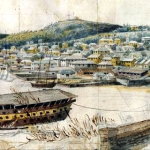
The Convict Hulks of Bermuda
I have long been interested in Bermuda. Like the island that I studied for my PhD thesis, Mauritius, it has no indigenous population. It was settled during the age of European expansion, and developed using indentured servants from Europe and African slaves. In Mauritius the call for a new form of unfree labour in the […]
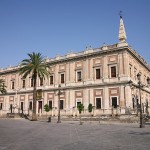
Spanish Pacific – the exhibition and the catalogue
During my research trip to Seville in January 2014, and then again in March, I had the opportunity to visit the exhibition Pacífico: España y la aventura de la Mar del Sur (Pacific : Spain and the adventure of the South Sea). It was hosted in the magnificent building situated between the Cathedral and the Real […]
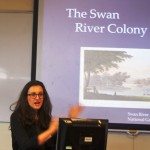
First Carceral Archipelago Panel
A few weeks ago, it was wonderful to have our first Carceral Archipelago project panel. The three postgraduates working on the project – Carrie Crockett, Kellie Moss and Katy Roscoe – showcased their progress so far in three twenty minutes papers at the School of History’s postgraduate conference at the University of Leicester. We were […]
Announcing the Carceral Archipelago Conference Call for Papers
We are excited to open the Call For Papers (CFP) for the Carceral Archipelago’s upcoming international conference, The Carceral Archipelago: Transnational Circulations in Global Perspective, 1415-1960, to be held in September 2015. Scholars of penal settlements and colonies from all over the world are warmly invited to submit proposals for papers and panels. […]
Reflections from our project intern
By Jamie Harris, Carceral Archipelago undergraduate intern, 2013-14 I was an intern for the Carceral Archipelago project for 10 weeks. During this time I had two specific tasks to complete. For the first task I was required to research numerous websites to locate and reproduce information regarding post doctoral fellowships. The purpose of this was […]

Looking for convict heritage
By Eureka Henrich, CArchipelago Project Researcher I grew up in Sydney, conscious as any Australian school child of my city’s 18th century origins as a penal colony. At primary school we learned the stories through song, such as ‘Bound for Botany Bay’ (narrated by forlorn transportee who warns those back home in England not to […]

Of Ainu Women and Russian Prisoners: Listening for the Voice of the Other
In my research on the penal colony of Sakhalin, I recently stumbled across two photographs I found to be particularly interesting. Both are images of indigenous women who lived in the eastern Russian empire during the late nineteenth century. Although the photographs hint that the women’s lives were vastly dissimilar, both represent an indigenous response […]
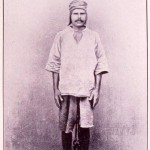
Towards an Evolutionary History of Penological Information in Modern Japan
By Takashi Miyamoto, CArchipelago Project Researcher The history of modern prisons in Japan started with efforts to translate information on penology from western countries and their colonies. Kangokusoku Narabini Zushiki (Prison Rules with Figures), the first prison regulations written by Ohara Shigeya in 1872, reflected the information he obtained during his tour to Singapore […]
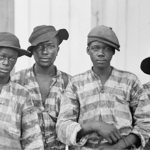
“What Is History For?” Thinking about forced migration and its aftermath
Three days of incredible discussions at NYU Abu Dhabi. “How Migration Makes Meaning” brought together a small group of historians, anthropologists, writers, curators, and creative practitioners of film and photography, to discuss the convergences and coalescences of movement, mobility and circulation around and across the Atlantic and Indian Ocean worlds. Our interdisciplinary focus reaped rich […]

Recent Comments